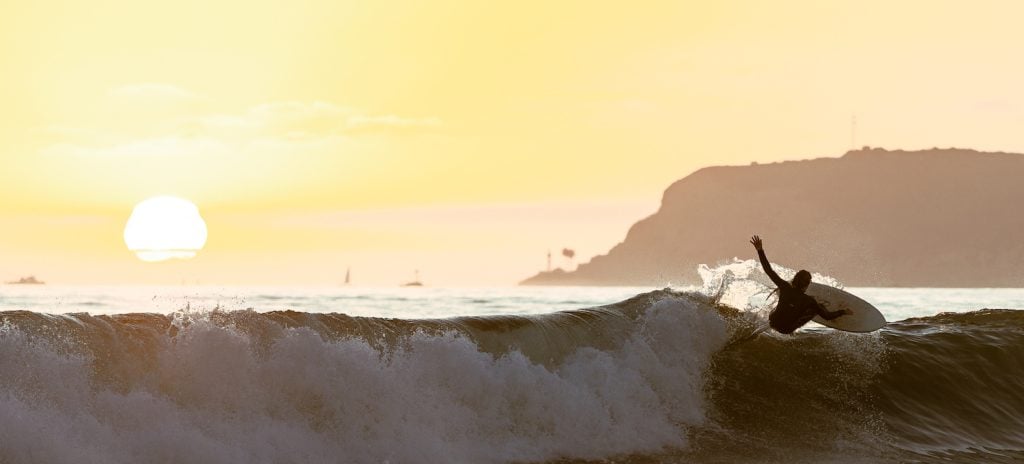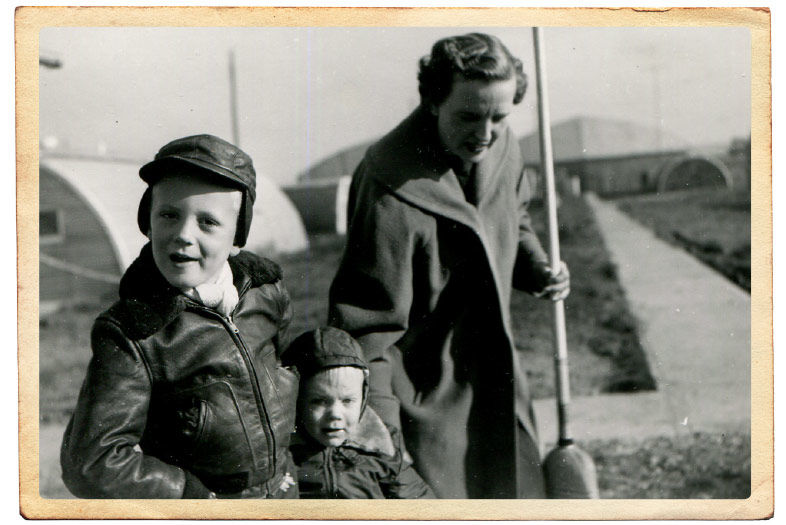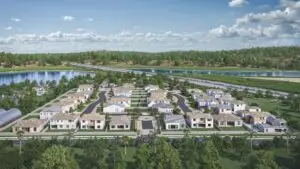The first time my father died, he was six years old.
His family was living on Châteauroux-Déols Air Base in central France, where Grandad was stationed. After midnight Grandad awoke to a loud thump; he turned on his bedside light to see his firstborn sliding down the door frame, turning blue.
He’d never shown any prior asthma symptoms, but that night his throat closed up in his sleep. He collapsed into his father’s arms; Grandma scooped up his baby brother, and they flew the house barefoot. Halfway to the base infirmary, Dad’s heart stopped. Shortly after laying him out on the exam table, the physician on duty glanced up at the wall clock and read it, declaring him dead.
It’s difficult today to imagine a time before CPR was invented. Now, teenage lifeguards can get certified in lifesaving from taking a 90-minute course—but in 1956 the practice of rescue breathing was far from widespread, chest compression was virtually unknown, and no one had yet thought to combine the two.
This is the story as he told it. Retelling it now I see the missing details, the room for exaggeration, things that this magazine’s fact checker (me) should probably dispute. But the distinctions between legal death and brain death miss the point, which is what he remembered from the experience. He watched the stars go out; his father’s prayers muffled; and when there was nothing else left he felt a distinct presence that comforted him, told him wordlessly that everything was going to be all right. When he returned to earth, the first thing Dad said was “I was with Jesus.”
It was one of the formative experiences of his life. From that day on he never had the slightest doubt in the existence of God, because as far as he was concerned, they’d already been introduced.
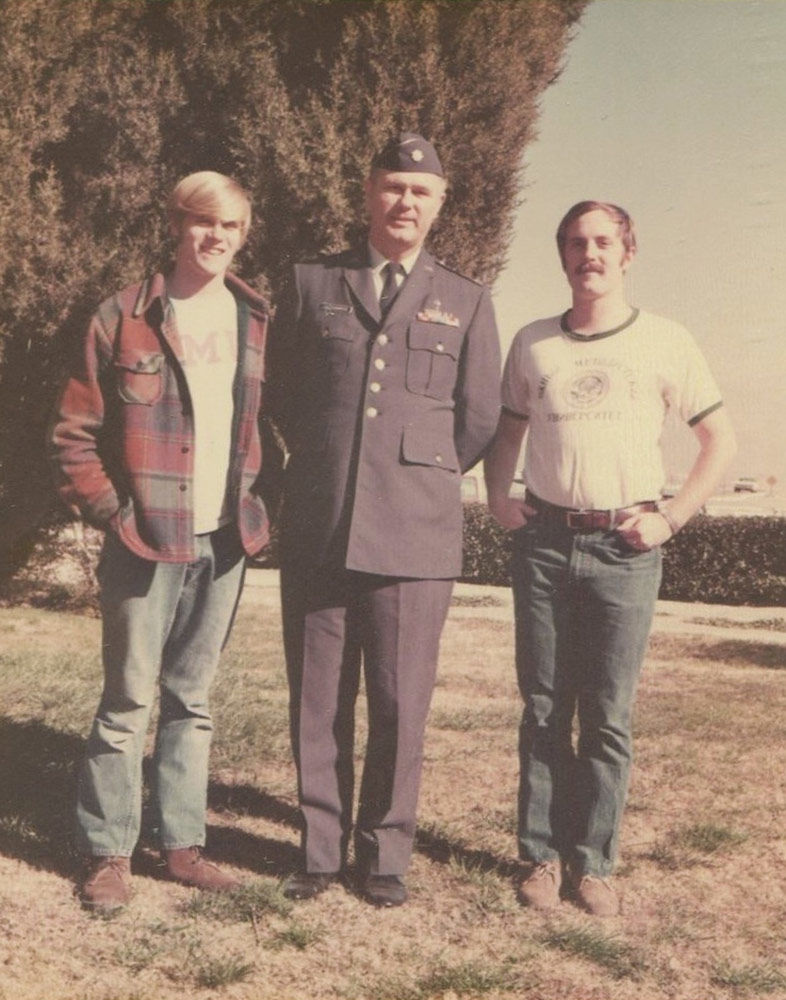
Sky of Blue and Sea of Green
Grandad with my uncle, left, and dad, right, about 1970.
Grandad was an Air Force chaplain. Both his children followed in his footsteps: My uncle became a preacher; Dad flew helicopters for the Navy and when he retired, pursued lay ministry. My uncle’s family settled in Arkansas. We hardly ever visited, but whenever he and my dad got on the phone, they would talk for hours on the finer points of Wesleyan doctrine.
My family attended church at Christmas and Easter and a handful of other times a year. They taught me to pray every night and say grace before meals, but religion never held the ironclad authority it did in my uncle’s house—which at one point drove my cousin to run away to the woods and convert to Islam. (He later gave it up because he missed bacon.)
Dad and I never did see eye-to-eye on the almighty. When I joined an evangelical group as a teen and started lecturing my friends, he rolled his eyes at “the born-agains” and had to tell me to take it easy. “When the Lord comes back, he’s gonna say that most of us had him all wrong.” But he kept asking me to say grace at dinner even after I downgraded to deism. I’m not sure whether that was wishful thinking or a guilt trip; I would smile politely and say he could do the honors.
I never knew Grandad; he had a heart attack when I was four. Dad spoke highly of him as a Renaissance man. Though he never finished high school, he read Plato at the public library; he taught himself to paint and play the violin and develop photographs.
But Dad never hung more than a single picture of him, and that in the room he frequented least. His bedside dresser had photos of Grandma, of Mom and me, of my aunt and uncle in bumblebee costumes, and of his helicopter.
By and by I’ve learned that Grandad was an overbearing man who likely spent more time inspecting pocket change for his extensive coin collection than with his family. I’m thankful that Dad never pushed me toward church or military service; he encouraged me to express my feelings, and he always had time to answer my questions about how sound waves work or what makes the sky blue.
Meanwhile, all of his father’s photography was buried in our garage. I only discovered it after he was gone.
Dad was more laissez-faire about mortality than anyone I know. “Whenever the lord wants to take me,” he’d shrug. In ’98 when we were riding bikes together, I’d just crossed the 805 on the J Street bridge when I noticed he wasn’t behind me anymore. He’d stopped at the far side, clutching his chest.
His doctor told him he was a walking time bomb. They opened his rib cage and stitched three new vessels to his heart to lengthen the fuse. For the rest of his life that pale, hairless scar reminded us of his borrowed time. Yet he undertook no exercise and still ate three rashers of bacon every morning.
Mom and I braced ourselves at the triple bypass. We braced again at the gall bladder removal, the diabetes, and the chronic dizzy spells. When cancer came in 2015, his health problems had been a member of the family for so long that bracing was the new baseline. Here it comes. This time for sure. Any day now.
They took his lung, and Dad was cancer free for 30 months. Then it came back and there were no more lungs to take. He put all his account numbers and passwords into a Word document and started writing his memoir.
Then last summer his brother died. It blindsided everyone: a sudden brain aneurysm at age 62. He’d been in perfectly good health and still owned a complete set of internal organs. He and his wife had—literally—just bought a farm.
We went to Arkansas to join his congregation in mourning. At the pulpit, Dad turned to the casket and cried, “It was supposed to be me.”
Dad had no bandwidth for my generation’s music, and most of his didn’t deserve his nostalgia, but one band we did agree on was The Beatles. My first CD was Sgt. Pepper. My sophomore year of college, we took a 13-state road trip to see all the places he’d grown up, and listened through the whole discography at least twice. So when I learned in January that Ringo would be at Harrah’s Resort in March, I couldn’t pass it up, even though that familiar thought reported, I hope he’s still here in two months.
He’d begun a steeper decline in the new year. The intervals available to stand and walk were shrinking. For a while he doubted he could make the trip all the way from Chula Vista to Valley Center. But Harrah’s couldn’t have been more accommodating. The valet was right at the front door; he rallied for the ten-yard walk inside to some cushy seats, and the front desk staff brought us a rental wheelchair. I took him to the Events Center—avoiding the smoking section wasn’t easy—where it turned out our seats were a dozen steps up. But again Harrah’s staff came to the rescue, escorting us to the ground-level ADA section—which also had a much better view.
Sir Richard Starkey was bemused to play a town legally named Funner, California, but he put on a good show. His All-Starr Band included members of Santana, Toto, and Men at Work, so we got to hear not only some of our favorite Beatles tracks, but several more favorite songs from his youth.
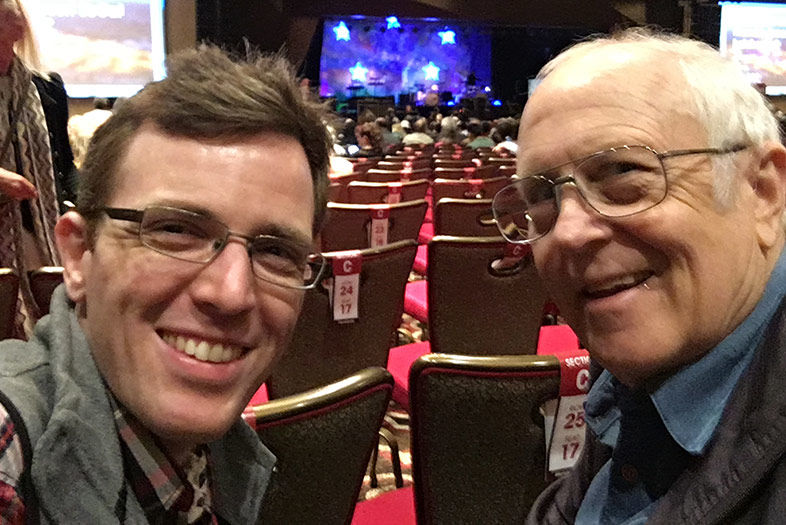
Sky of Blue and Sea of Green
Me and Dad waiting for Ringo Starr at Harrah’s Resort Events Center, March 2019.
“Summer 1970,” he would lean over and tell me, “cruising around Dallas, windows down.” Or, remembering his best friend, “JR and me, Pensacola Beach, singin’ and drunk off our asses.”
And though he’d been sure he would need the wheelchair all night, several times he stood and clapped and sang along as loud as his lung could take. He gushed to his friends the next day that it was the best show he’d ever seen. You’ve never heard “Yellow Submarine” until you’ve heard a whole auditorium of boomers and their kids doing the callbacks in unison—Every one of us has all we need (All we need!). Sky of blue, (Sky of blue!) and sea of green (Sea of green!).
It was the last time I saw him. Two weeks later his heart gave out for good.
This isn’t the place for apologetics. I’m not here to defend my view of the cosmos or critique his. Whether or not my father had an eternal soul, I hope he experienced the reunion he’d been looking forward to. I know he would’ve met it joyously, without fear.
For my part, I take comfort in the literal truth that he will always be with us. In memory, of course—but also his body, his atoms, will remain part of the world forever. The earth is a closed system, after all.
Nine hundred septillion carbon atoms (give or take), fused in a primordial supernova, coalesced into this spinning rock, passed through endless forms most beautiful—soil, seashell, peat moss, Hadrosaur, mealworm, daffodil, on and on—until just once, for 69 short years, they all came together and took the form of a man with the capacity to wonder about his place in all of it, who felt the heat of the sun on his skin, who made love and read books and taught a child how to be kind.
Those carbon atoms dispersed again, as they have countless times before. Part of them became ashes in an urn at Miramar Cemetery, where they’ll stay undisturbed at least as long as the United States exists. Other names will come and go from maps; humans will stick around or depart for the stars or destroy themselves; oceans will rise and fall, glaciers advance and retreat, and at some point in there my dad’s ashes will return to the earth once more, a brief stop on their road to becoming something or someone else.
But let’s not get ahead of ourselves. Another part of his atoms became smoke rising through a chimney. They hitched a ride on the tradewinds and joined the upper atmosphere, where they’ve got a new job scattering sunlight, sending the shorter wavelengths down so we can see them.
What makes the sky blue now is my dad. And that doesn’t sound so bad to me.
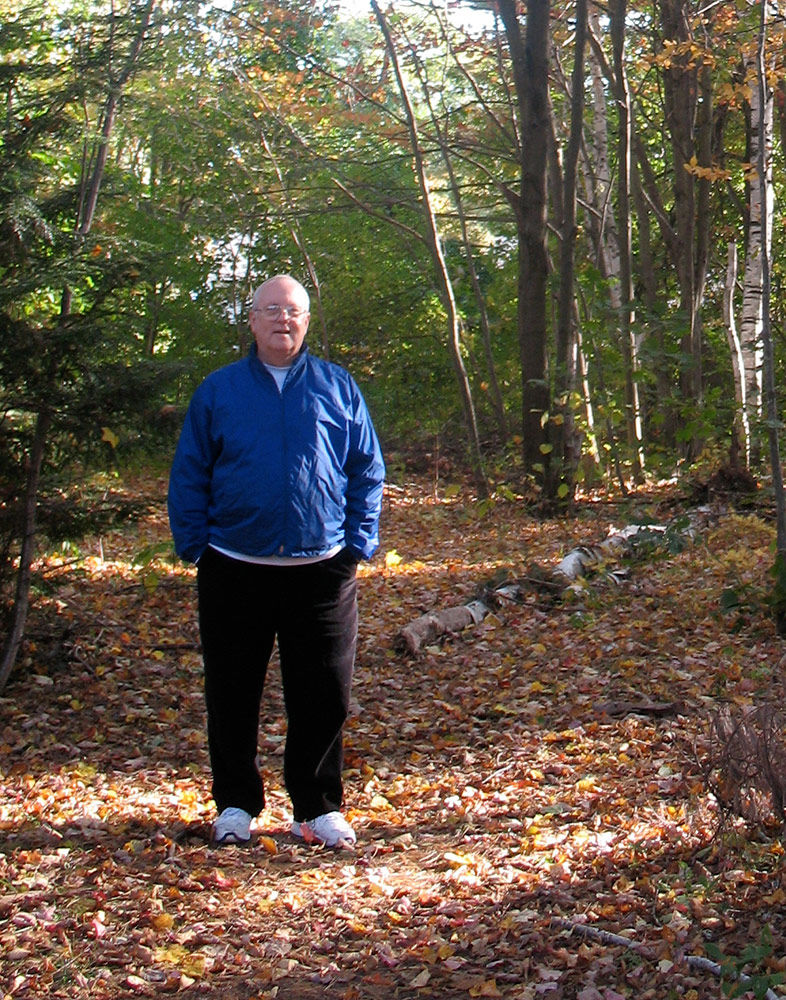
Sky of Blue and Sea of Green
Walking in the woods near Brunswick, Maine, 2009.
When a family member dies, I dream about them three times. It already happened with my grandmother and grandfather. In the first two dreams, they don’t know they’re dead yet. I do, but I know not to tell them. My job is to appreciate their presence, relive a memory we had together, and tell them I love them. In the third dream they know, and we say goodbye.
I had the first dream of my father in July. We were walking through the woods behind his elementary school in Brunswick, Maine. In life this happened on one of our road trips, in 2009. He was cold but happy, pointing out landmarks he could still remember half a century later. A year after he died and met Jesus, he and his baby brother were exploring these willows by themselves. Kids in coonskin caps building tree branch forts in the mud.
In life and in the dream, he said, “You know, this is probably the last time I’ll ever see this place. I’m glad you could see it with me.”
When it comes, I know the third dream will be the shortest. Just a silent image of a person fading in the dark. But what fills that darkness to the brim like deep, held breath, is the promise that everything will be okay.
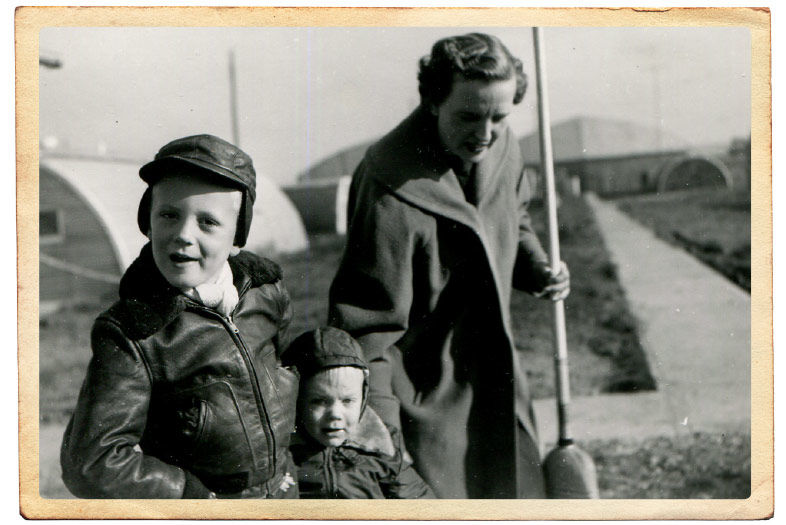
Sky of Blue and Sea of Green
PARTNER CONTENT
My dad with my uncle and grandma on Châteauroux-Déols Air Base in 1956, not long after he died.
